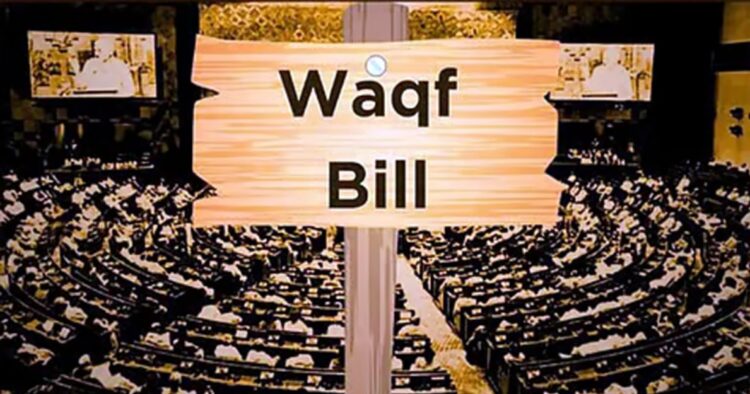- BJP’s Waqf Bill ensures transparency and ends corruption.
- Removes arbitrary Waqf claims and allows High Court appeals.
- Prioritizes accountability over appeasement politics.
The Central government, led by the BJP, has taken a major step towards transparency and accountability in the management of Waqf properties by introducing the Waqf (Amendment) Bill, 2024. This significant reform aims to bring efficiency, end corruption, and ensure fair governance in one of the largest land-owning entities in India.
BJP’s Commitment to Reform
For decades, Waqf Boards have been marred by allegations of mismanagement, land encroachments, and corruption. The Modi-led NDA government has introduced this Bill to put an end to irregularities and ensure that Waqf properties serve the actual purpose they were intended for education, healthcare, and economic empowerment of the needy. Unlike previous governments, which neglected the issues surrounding Waqf properties, the BJP has taken decisive action to address the loopholes and make the system more accountable.
Unprecedented Transparency in Waqf Management
One of the most critical provisions of the Bill is the removal of the arbitrary power of Waqf Boards to declare any property as Waqf land without proper documentation. Under the 1995 Act, properties could be labeled as Waqf based solely on prolonged religious use. This led to many disputes and illegal encroachments. The Amendment Bill now ensures that only properties legally owned by a person practicing Islam for at least five years can be declared as Waqf. This move protects innocent landowners and prevents misuse of religious provisions.
Another major highlight of the Bill is the provision that allows High Courts to hear appeals against Waqf Tribunal decisions. Earlier, the Tribunal’s decision was considered final, preventing affected parties from seeking further legal recourse. This change upholds justice and ensures that common citizens are not harassed by unchecked power.
Furthermore, the Bill includes provisions to involve women and non-Muslims in the decision-making process, breaking the monopoly of select groups that have dominated Waqf affairs for decades. The inclusion of Pasmanda Muslims and the formation of separate Boards for Bohras and Aghakhanis highlight the BJP’s commitment to inclusive governance.
End of Congress and Left’s Appeasement Politics
For years, opposition parties, particularly the Congress and the Left, have used Waqf properties as a tool for appeasement politics. They allowed corrupt elements to control these assets while turning a blind eye to mismanagement and financial irregularities. Despite multiple reports, including the Sachar Committee report of 2006, which highlighted the poor revenue generation of Waqf assets, no concrete steps were taken to reform the system.
However, under the Modi government, the era of political appeasement is ending. The Waqf (Amendment) Bill 2024 aims to ensure that these properties generate substantial income for social causes rather than being used for political gains by select elites. If implemented properly, the reforms can increase revenue from Waqf properties from a mere Rs 163 crore per year to Rs 12,000 crore annually.
Many Islamic countries like Turkey, Egypt, and Syria do not have Waqf properties, yet in India, Waqf Boards are the second-largest landowners after the Indian Railways and the Armed Forces. It is only logical that such large assets should be subject to proper legal and financial scrutiny. The new Bill introduces a clause empowering the Central government to get Waqf accounts audited by the CAG or a designated officer, ensuring greater accountability.
Unlike the previous governments that misused Waqf properties for vote-bank politics, the BJP is ensuring that these lands are utilized for the actual benefit of the underprivileged. This bold move will strengthen India’s legal framework, prevent illegal land grabs, and promote transparency in religious property management.
The introduction of the Waqf (Amendment) Bill 2024 is a landmark decision that showcases the BJP-led NDA government’s commitment to ending corruption and inefficiency in the management of religious properties. Unlike opposition parties that have played politics with Waqf assets, the Modi government is working to make the system fair, transparent, and beneficial for all. This move will not only bring financial stability to Waqf institutions but also uphold the principles of justice and accountability, reinforcing the government’s vision of ‘Sabka Saath, Sabka Vikas.’
ALSO READ: “Waqf Bill Row: What’s Fueling the Clash Between NDA and Opposition?”

















Comments